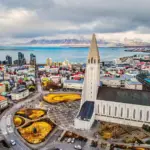Introduction
Traveling alone is an incredible experience, but it's important to be prepared for any emergency situation that may arise during your trip. In this article, we'll discuss some essential emergency communication practices for solo travelers.
When traveling alone, it's crucial to have effective means of communication to deal with potential emergencies. After all, being in an unfamiliar country without the support of friends or family can be challenging. Therefore, it's important to be prepared and know the best ways to communicate in emergency situations.
One of the first things you should do before starting your solo travel Research the emergency services available at your destination. Write down local emergency numbers, such as police, fire, and ambulance, and make sure you have them handy. It's also important to know a few basic phrases in the local language to communicate in case of emergency.
In addition to emergency numbers, it's highly recommended to have a personal emergency communication plan. Tell someone close to you about your travel plans, including details about the places you plan to visit and the dates you plan to be there. This way, if something goes wrong, they'll have important information to help you.

Another important tip is to use geolocation and communication apps while traveling. There are several apps available that can help you share your real-time location with trusted people. These apps can also allow you to send emergency messages if you find yourself in a dangerous situation.
It's also essential to have a contingency plan in case your phone or other electronic devices are lost or stolen. Write down emergency contact numbers and the addresses of your country's embassies or consulates at your destination in a safe place. This way, even if you lose your belongings, you'll still have access to information and support to deal with emergencies.
Planning ahead
Before starting your trip, it is essential to prepare adequately. Make sure you have a detailed travel plan. Include information about the destinations you want to visit, the means of transportation you'll use, and the dates of your stay in each location. This will help you stay organized and facilitate communication in an emergency.
Furthermore, it is important share your travel plan with an emergency contact. Inform this trusted person about the details of your journey, such as the places you plan to visit, your departure and arrival dates, and the means of transportation you will use. This way, in the event of any unforeseen circumstances or emergencies, your emergency contact will have access to relevant information.
Another important aspect is have comprehensive travel insurance that covers any eventuality. Make sure your insurance includes medical coverage, trip cancellation coverage, lost luggage coverage, and emergency assistance. Read the insurance terms and conditions carefully to understand the coverage offered and the situations in which you will be protected.
Communication during the trip
While traveling, it's essential to stay in regular contact with someone you trust. Keeping this person informed about your updated itinerary and any unexpected changes provides an additional layer of security and peace of mind. Use communication apps, such as text messaging and internet voice calls, to communicate with your emergency contacts.
**Keep in touch with someone you trust:** During your solo travel, it's crucial to have someone who is aware of your itinerary and with whom you can maintain regular contact. This person could be a family member, a close friend, or even a coworker. Inform them of your travel details, including dates, destinations, and any changes to your plans. This way, they'll be aware of your location and can take action in the event of an emergency.
**Use communication apps:** Nowadays, we have a variety of communication apps at our disposal, which allow us to stay connected with people around the world. During your solo travel, take advantage of these tools to stay in touch with your emergency contacts. Text messaging apps like WhatsApp and Telegram are a great option, as they allow you to send quick and instant updates about your location and well-being. Additionally, internet voice calling apps like Skype and Facetime can be useful if you need to make an emergency call.

**Tips for Effective Communication:** While traveling, it's important to remember a few tips to ensure effective communication with your emergency contacts. Keep your phone charged and have a data plan or Wi-Fi access available so you can communicate whenever you need. Also, save relevant contact numbers on your phone, such as local emergency services and your country's embassy or consulate.
**The Importance of Communication in an Emergency:** Effective communication during solo travel can be crucial in emergency situations. If you find yourself in a difficult situation or need assistance, being able to quickly contact your emergency contacts can help you resolve the issue more efficiently and get the support you need. So, make sure you have a well-established communication plan before you head out on your own. solo adventure.
Using local resources
In case of emergency, it's important to know the local resources available. Find out the emergency phone numbers for the country you're visiting and be aware of transportation and roadside assistance services. traveler offered throughout the region.
Know the emergency telephone numbers
Before you travel, research and write down your country's emergency telephone numbers. country you are visitingThis includes police, fire, and ambulance services. Having these numbers handy can be crucial in emergencies, as you can quickly contact local authorities for help.
Be aware of transportation services
In addition to emergency phone numbers, it's important to know the transportation services available in the area you're visiting. what are the options by taxi, public transportation, and ride-sharing services. Familiarize yourself with the routes and schedules of public transport to make getting around easier during your trip.
Use travel assistance apps
Nowadays, there are several travel assistance apps that can be extremely useful in emergency situations. These apps offer features like real-time location, contact with emergency services, and information about nearby hospitals and clinics. Do your research and download a reliable app before your trip to ensure you have access to these resources when you need them.
Stay informed
While traveling, it is essential to stay aware of local news and the conditions of your surroundings. Stay informed about events or incidents that may affect your safety is crucial for a smooth solo trip and without unforeseen events. To do this, use alert and notification apps that allow you to receive updated information in real time.
There are several apps available that can provide news, safety alerts, and updates about your destination. Some popular apps include Google News, BBC News, CNN, and the local news app for the country you're visiting. These apps can provide information on weather conditions, local events, safety warnings, and even emergency notifications.
Additionally, many countries have emergency alert systems that send text messages or notifications to citizens and visitors in the event of natural disasters, security concerns, or other emergencies. These systems can be especially useful during solo travel, as they allow you to be aware of any imminent risk situations and take the necessary measures to ensure your safety.

In addition to using news and alert apps, it's also important to stay informed about the culture, history, and politics of the country you're visiting. Knowing local customs and understanding the nuances of society can help you avoid unwanted situations and adapt more easily to your surroundings. Do research about the destination, read books, watch documentaries and talk to locals to get insider information and tips useful.
Finally, remember that emergency communication during solo travel is crucial. Always have a contingency plan and know how to contact local authorities if necessary. Keep emergency telephone numbers for the country you are visiting, as well as contact details for embassies or consulates in your home country. This information can be essential in emergency situations and ensure you receive the assistance you need quickly and efficiently.
Conclusion
Effective communication during solo travel is essential to ensure your safety and peace of mind. By following emergency communication practices, you'll be prepared to handle any unexpected situation that may arise.
Stay informed: While traveling, stay tuned to local news and environmental conditions around you. It's important to be aware of events or incidents that could affect your safety. Use alert and notification apps to receive up-to-date information. These tools can provide alerts about adverse weather conditions, protests, transportation issues, and more.
Use communication apps: There are several communication apps that can be useful during solo travel. Instant messaging apps like WhatsApp, Telegram, and Signal allow you to communicate with friends, family, and authorities in case of an emergency. Make sure you have emergency contacts saved on your phone and familiarize yourself with these apps before traveling.
Have an emergency communication plan: Before departing on your solo trip, it's important to have an emergency communication plan in place. Inform someone you trust about your travel plans and share details such as itineraries, contact information, and expected return dates. Agree on a regular communication method to update this person on your location and well-being during the trip.
Be prepared for emergency situations: In addition to communicating effectively, it's essential to be prepared for emergencies. Carry a basic first aid kit, be aware of local emergency numbers, and know how to summon help if needed. Learn about the laws and regulations of the country you're visiting, as well as local cultural practices and customs, to avoid unwanted situations.
Remember, emergency communication while traveling solo is crucial to ensuring your safety and well-being. Follow these practices and enjoy the experience of traveling alone with tranquility and confidence.

Emergency communication is crucial for any traveler, especially when traveling alone in an unfamiliar place. Having a cell phone handy allows you to contact emergency services, family, or friends if necessary. Additionally, with technological advancements, there are numerous apps and resources available that can facilitate communication in emergency situations while traveling.
**It's important** to remember that before traveling, you should check that your cell phone is unlocked for international use and that you'll have network coverage at your chosen destination. Additionally, it's always helpful to have local emergency numbers saved on your phone for easy access in times of need.
**Another valuable tip** is to learn about available emergency communication apps. There are apps that allow you to send emergency alerts to pre-defined contacts, share your location in real time, and even make emergency calls directly from the app. These tools can be extremely useful in risky or dangerous situations while traveling.
Emergency Communication During Solo Travel
When it comes to traveling alone, emergency communication is a fundamental aspect of ensuring safety and peace of mind during your journey. Being prepared for any unforeseen event or emergency situation is essential to deal with potential setbacks and obtain assistance when needed.
Safety First
To the plan a trip When traveling solo, it's important to prioritize safety at every step, and effective communication plays a crucial role in this. Before embarking on your adventure, make sure you have a well-established emergency communication plan. Inform family or close friends of your itinerary and keep them regularly updated on your whereabouts. This will allow them to know your location and can alert authorities or provide assistance if something goes wrong.
Communication Applications and Devices
In today's modern world, there are several communication options available to solo travelers. In addition to cell phones, which are essential for staying in touch, there are specific apps designed for emergency situations while traveling. Apps like "Find My Friends" or "Find My iPhone" can help locate your location if you're in danger or need assistance. Additionally, it's recommended to have a backup communication device, such as a radio or GPS tracking device, for situations where cell signal is unavailable or weak.
Emergency Preparedness
In addition to maintaining open lines of communication, it's essential to be prepared for emergencies during your solo trip. Here are some important measures to consider:
- Know your local emergency numbers: Before traveling, research the emergency numbers for the country or region you're visiting and save them to your phone. This includes the numbers for police, fire, and emergency medical services.
- Have a first aid kit: Carry a well-stocked first aid kit with essential items like bandages, pain relievers, disinfectants, and allergy medications in case you need basic medical care.
- Be aware of local laws and customs: Before traveling, familiarize yourself with the laws and customs of the country or region you're visiting. This will help prevent emergencies and ensure you're aware of how to handle potential legal issues.
- Consider travel insurance: Purchasing travel insurance is a smart way to prepare for any medical emergencies or unforeseen situations during your trip. Make sure you choose a plan that suits your needs and covers medical expenses, repatriation, and trip cancellation if necessary.
Conclusion
Emergency communication is a vital component of any solo trip. When planning your adventure, consider the importance of being prepared for any emergency situation. Maintain open lines of communication with family and friends and utilize available technological resources to ensure your safety and peace of mind throughout your journey. Remember that prevention is always better than cure, and being prepared is the best way to enjoy your solo trip with confidence and peace of mind.
Lucas Wanderlust has a tireless spirit of adventure, always seeking new travel experiences. Fascinated by the world and the possibility of exploring unknown destinations, he fell in love with the sense of freedom and self-discovery that traveling alone provides. With a backpack on his back and a heart open to the unknown, Lucas embarks on exciting journeys, where each destination becomes a unique chapter in his life story. He gives himself body and soul to the magic of solo travel, inspiring others to follow in his footsteps and discover themselves through adventure.







